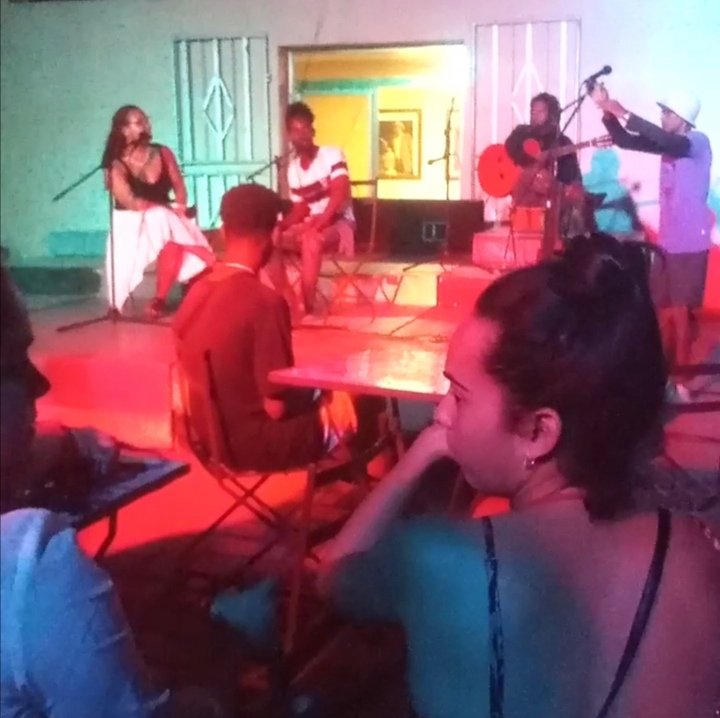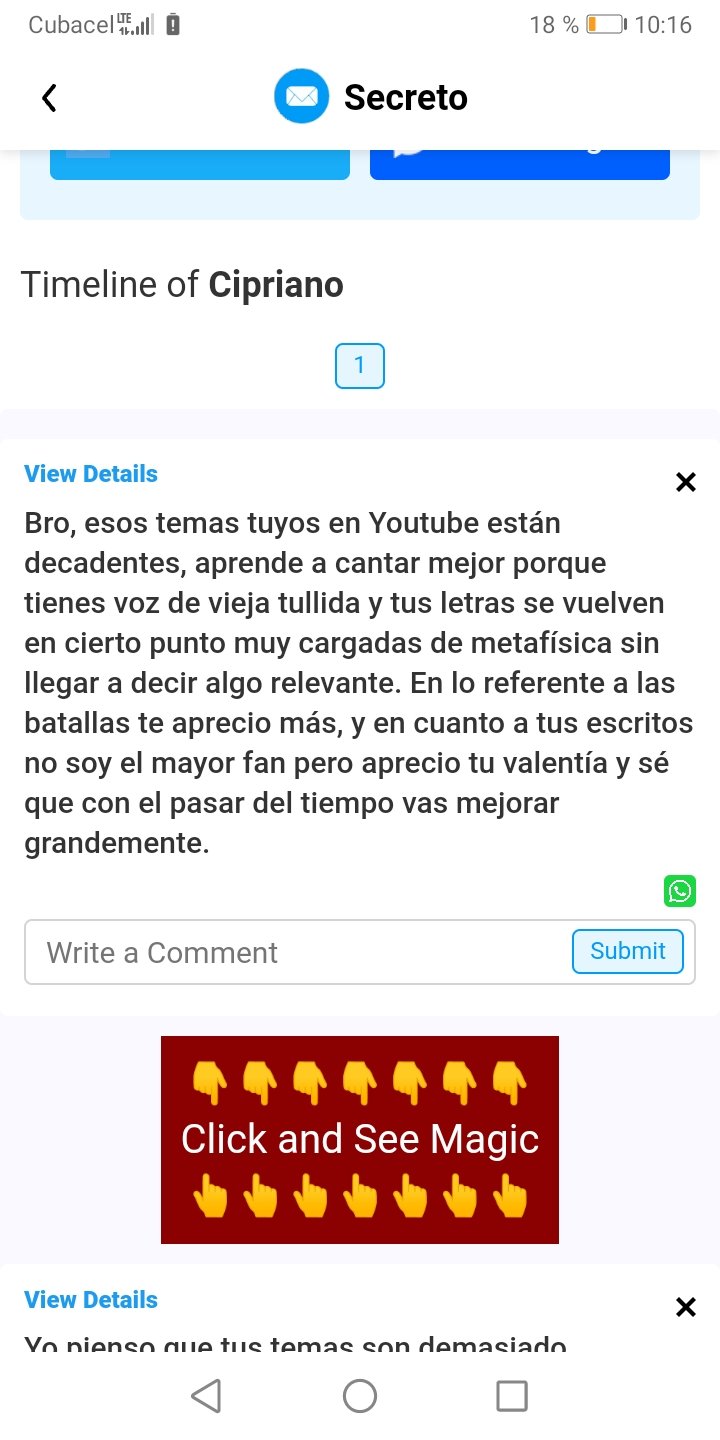
Ayer un poco aburrido de todo la verdad decidí probar un pequeño juego de esto donde la gente manda críticas anónimas a través de un link y claro esperando opiniones de todo tipo sobre mi, pero ocurrió algo cuando menos muy curioso. La gente en vez de realizar las críticas hacia mi comenzó a orientar opiniones de todo tipo hacia mi arte. Y claro que cuando se habla de críticas se tiende ir en mayor medida hacia lo negativo.
Yesterday, a bit bored of everything, I decided to try a little game where people send anonymous reviews through a link and of course expecting all kinds of opinions about me, but something very curious happened. Instead of criticizing me, people began to direct all kinds of opinions towards my art. And of course, when we talk about criticism, we tend to go more towards the negative.

Críticas sobre mi voz, la complejidad de mis letras o comparaciones entre mi Freetyle o mi música no se hicieron esperar. Aunque no me sorprendía y muchas veces si entendía el lugar de donde venían tales opiniones en la mayoría de los casos las formas de expresarlas tomaban formas cortantes qué muchas veces si terminaban por herir un poco, pero ahí esta la razón de ser de este post.
Criticisms about my voice, the complexity of my lyrics or comparisons between my Freestyle and my music were not long in coming. Although I was not surprised and many times I understood where such opinions came from, in most cases the ways of expressing them took sharp forms that often ended up hurting a little, but that is the reason for this post.
En vez de arremeter contra todo y todos cazando fantasmas o intentando dilucidar el origen de las críticas me concentre en dos cosas. Primero en tomar las partes de esas críticas que me podían aportar algo positivo y reflexionar como podía mejorar esas o si debía cambiarlas en primer lugar. Porque desde mi visión la relación con el arte es algo personal, que se comparte al resto del mundo para quien se pueda sentir identificado pero que no debe hacerse ni pensarse con el fin de que ciertas y determinadas personas conecten con él.
Instead of attacking everything and everyone hunting ghosts or trying to elucidate the origin of the criticism, I focused on two things. First, I took the parts of those critiques that could bring me something positive and reflected on how I could improve them or if I should change them in the first place. Because from my point of view, the relationship with art is something personal, which is shared with the rest of the world for whoever can identify with it, but which should not be done or thought of in order for certain and determined people to connect with it.
También la parte puramente negativa de las críticas me sirvió para algo, de hecho algo importante. Había pedido críticas sobre mi y recibí críticas sobre mi música. Esto era un punto importante, porque si mi persona se ve de manera indisoluble ligada al arte, significa que como artista algo debo estar haciendo bien, porque la gente no me concibe separado de este.
The purely negative part of the critiques also served me for something, something important in fact. I had asked for critiques about myself and received critiques about my music. This was an important point, because if my person is seen as inextricably linked to art, it means that as an artist I must be doing something right, because people do not conceive of me as separate from it.
Al final la respuesta resulta ser sencilla, con las críticas uno debe tomar lo que realmente le puede aportar y el resto intentar usarlo de la manera más positiva que se pueda siempre.
In the end, the answer turns out to be simple: with critiques, one must take what it can really contribute and try to use the rest in the most positive way possible.